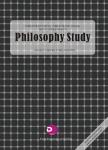Structuralism and Postmodem Discourse
Structuralism and Postmodem Discourse作者机构:University of Zilina
出 版 物:《Journal of Philosophy Study》 (哲学研究(英文版))
年 卷 期:2017年第7卷第4期
页 面:191-196页
学科分类:01[哲学]
主 题:linguistic structuralism parole post-structuralism postmodem philosophical theory
摘 要:The dominant features of the post-war intellectual scene in France were existentialism, phenomenology, and Marxism, as well as efforts to synthesize them. In the 1960s, these theoretical currents had to cope with new perspectives and ideas brought to the world of theory by the linguistically-oriented discourse of Saussure's structuralism and Lacanian psychoanalysis. Structuralists tried to apply structurally-linguistic model to the humanities and designed the new concept of the language, subjectivity, and society. Levi-Strauss applied the structural-linguistic analysis to the study of myths and family relationships; Lacan developed psychoanalysis based on structuralism; Althusser comes with a structuralist interpretation of Marx. Structuralists attempted to analyse the unconscious codes, rules, and binary oppositions that create the meaning, thus organizing social systems, such as sexual behaviour, fashion, culinary arts, myths, etc. Structures are unconscious, because their product and effects always overlap them. Structuralism therefore does not study individual isolated phenomena, but it moves from the analysis of phenomena that are consciously understood or known to participants in the particular discourse to their "unconscious infrastructures." Structuralists always emphasized rigorously scientific status of their theories; at the same time, applying structurally-linguistic concepts on humanities was supposed to help to make them scientific again.



